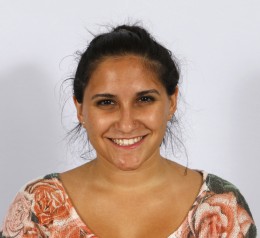
After traveling non-stop for five months and getting my first real taste of freedom on my semester abroad, my connection with myself and the world around me was at its peak; I never before felt so at peace with the person I am, and more so, the person that I am becoming. Like most students who’ve taken the plunge into international waters, I had an incredible, eye-opening journey and was eager to take my newfound spirit back with me to Binghamton University. I was ready to start my senior year with a positive mindset, and was beyond excited to reunite with all of my friends and to celebrate my last year of undergrad with them. However, I soon ran into some problems while trying to reconnect with old friends.
The first nights back in Binghamton were a whirlwind of foggy interactions on the Dillinger’s patio and 4 a.m. food binges at friends’ apartments. My excitement was still high as the first week of classes began, and I seemed to be getting along just fine.
But then it hit me — that weird and unsettling feeling in my gut. In quiet moments alone, I began to realize that my trials of transition weren’t over. Now, I had to re-adjust to life at BU. All at once I felt an overwhelming pressure to do well in classes and to begin constructing a “successful” future for myself. Further, I felt I had to fill in the gaps of the pieces I missed while I was away. I couldn’t deny that there was a massive disconnect between my closest friends and I. This, I learned, is a common sentiment among students who have studied abroad.
“When I first came back to school after spending my summer in Italy, I just wanted people to ask me about my experience, but no one cared as much as I did,” said Kayla Fennelly, a junior double-majoring in anthropology and linguistics. “It was so frustrating.”
While us “returnees” want so badly to talk about our time away, there is also the distinct feeling that nothing we tell people can possibly begin to cover what we experienced and what it meant to us. As the gap between us and our friends widens, we come to the sad realization that for a little while we were out of everyone’s picture, and stepping back into their frame isn’t quite so easy as you may have hoped.
But that’s because your picture has changed as well. “For me, it was hard coming back from my semester in New Zealand because while I was there I was surrounded by people who had the same interests as me, interested in hiking and being outdoors,” said Elyse Belarge, a senior majoring in environmental studies. “While it’s great that everyone here has different interests, it’s hard because no one wants to do those things with me.”
Dylan Miller, a senior majoring in political science, agrees.
“People just don’t really get it,” he said. “Going to Barcelona last spring is the best experience I’ve ever had and I would recommend it to anyone. I was always out doing things, going away on weekends. But it’s hard to do that here and to make people understand why it was so unique.”
Not only is it difficult for students here to embrace this adventurous mentality, but they also don’t seem to realize both how physically and mentally exhausting studying abroad can be. While largely a positive experience, the constant challenge of putting ourselves out there and interacting with people from different cultural backgrounds takes its toll. Suddenly, just as this was becoming normality, it was time to come home.
For friends of those who went abroad, I know we were gone, but now we’re back. Try to understand and do your best to reach out. Make us feel welcome, because we have a lot we want to share with you. And for those of us who went abroad, yes, it is different. But that doesn’t have to be a bad thing. The truth is that you’re not in the same place you were before. You’re in a new one, and arguably a better one. Embrace the new you and take the time to do the things you want to do without fear of excluding yourself. Don’t try to fit into everyone else’s picture; it’s not worth it. Go out there and take the picture yourself.
– Katie Kravat is a senior majoring in philosophy, politics and law


